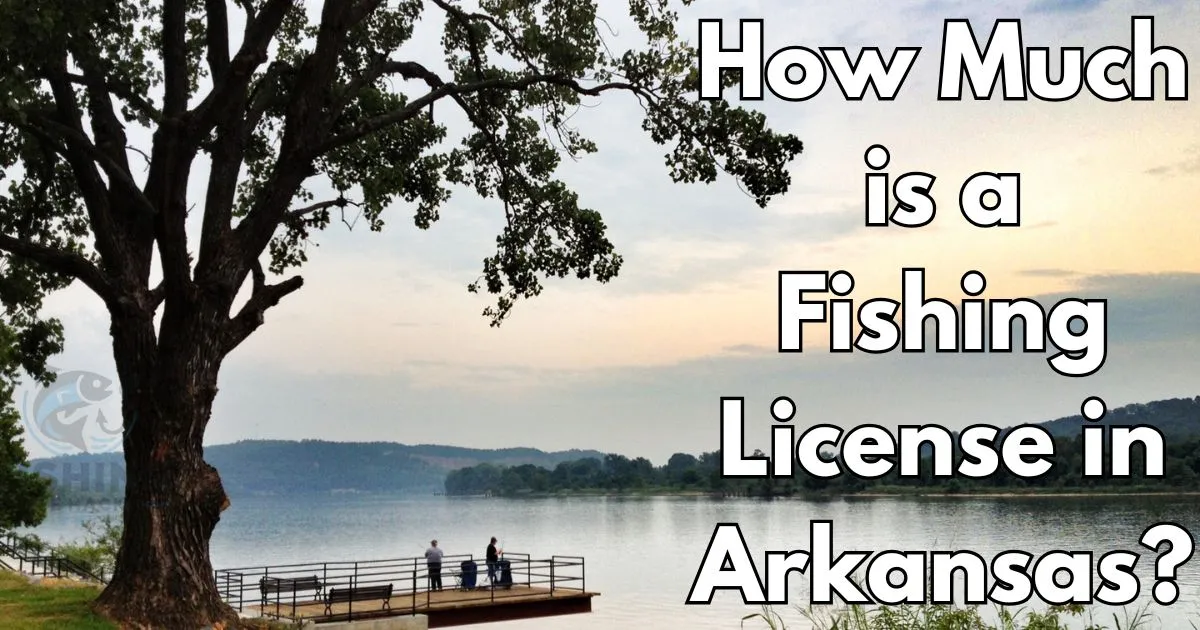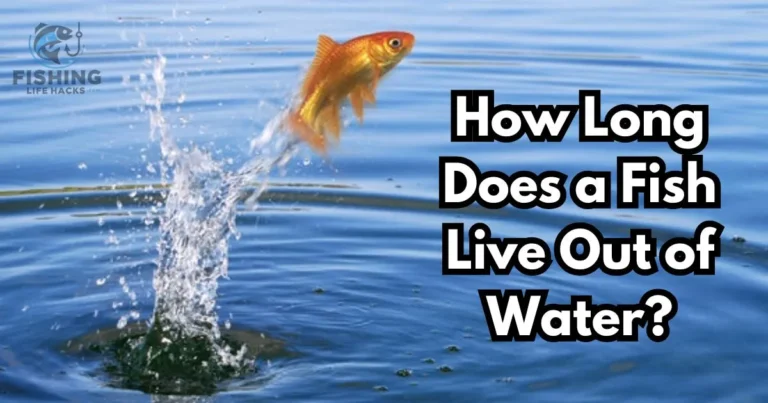Arkansas Fishing Licenses Complete Guide 2024

Fishing in Arkansas offers a variety of opportunities for anglers of all skill levels. However, before you cast your line, it’s essential to understand the state’s fishing license requirements. Whether you’re a resident or a visitor, knowing the types of licenses, their costs, and how to obtain one is key to a smooth and enjoyable experience. This guide will provide all the information you need to ensure you’re fishing legally and responsibly in Arkansas. Let’s dive into the details.
Types of Arkansas Fishing Licenses
Arkansas offers different types of fishing licenses to accommodate both residents and non-residents. Understanding the various license categories will help you choose the right one based on your residency status and fishing plans. Here are the primary types of fishing licenses available:
Resident Fishing Licenses
A resident fishing license is available to individuals who have lived in Arkansas for at least 60 days before purchasing the license. This license is designed for full-time residents and offers a more affordable option compared to non-resident licenses. The most common types of resident licenses include:
- Annual Resident Fishing License: This is valid for one year from the date of purchase and allows residents to fish in all public waters of Arkansas.
- Short-Term Resident Licenses: Available for residents who need a license for a shorter period, such as 1-day, 3-day, or 7-day options.
- Special Resident Licenses: Arkansas offers licenses for specific groups, including seniors, veterans, and disabled individuals, often at discounted rates or with special privileges.
Non-Resident Fishing Licenses
Non-residents are individuals who live outside of Arkansas but wish to fish in the state. Non-resident fishing licenses are typically more expensive than resident licenses. The common types include:
- Annual Non-Resident Fishing License: This license is valid for one year from the purchase date, granting the holder the right to fish in Arkansas’ public waters throughout the year.
- Short-Term Non-Resident Licenses: These include 1-day, 3-day, and 7-day fishing licenses, designed for tourists or anglers visiting Arkansas temporarily.
- Non-Resident Fishing Permit for Specific Areas: In some cases, non-residents may need additional permits for certain fishing areas or types of fishing (such as trout fishing in designated areas).
Eligibility and Age Requirements
In Arkansas, fishing license eligibility is based on residency and age. Understanding the age requirements is crucial for ensuring you comply with state regulations.
Arkansas Resident Fishing Licenses
Residents of Arkansas must meet the state’s age requirements to qualify for a resident fishing license. A person is considered a resident if they have lived in the state for at least 60 days before applying for the license.
- Children under 16: Arkansas residents under the age of 16 are not required to purchase a fishing license.
- Adults 16 and older: Arkansas residents aged 16 and older must obtain a fishing license to fish legally in the state’s public waters.
Non-Resident Fishing Licenses
Non-residents are defined as individuals who live outside Arkansas. Non-resident anglers must meet certain age requirements to obtain a fishing license.
- Children under 16: Non-residents under the age of 16 are not required to purchase a fishing license to fish in Arkansas.
- Adults 16 and older: Non-residents aged 16 and older must purchase a fishing license to fish legally in Arkansas.
Special Considerations
Some special exemptions or discounts may apply based on age, military status, or disability:
- Seniors: Residents 65 years of age or older are exempt from needing a fishing license.
- Veterans: Arkansas offers fishing license exemptions for certain veterans with disabilities.
- Disability: Individuals with a qualifying disability may be eligible for discounted or free licenses.
Cost of Arkansas Fishing Licenses
The cost of an Arkansas fishing license varies depending on factors like residency status, age, and the type of fishing you plan to do. Below is a breakdown of the costs for both residents and non-residents.
Resident Fishing Licenses
Arkansas residents enjoy discounted rates on fishing licenses. The following are common licenses available for residents:
- Annual Resident Fishing License: $10.00
This is the standard license for residents over the age of 16, allowing unlimited fishing in most public waters. - Senior Resident Fishing License (65 and older): $2.00
Arkansas residents 65 years or older are eligible for a discounted annual fishing license. - Resident Youth Fishing License (Under 16): Free
Children under 16 do not need a fishing license, but they must still comply with fishing regulations.
Non-Resident Fishing Licenses
Non-residents pay higher fees for fishing in Arkansas. The following licenses are available:
- Annual Non-Resident Fishing License: $50.00
This license allows non-residents to fish for an entire year. - 7-Day Non-Resident Fishing License: $25.00
Ideal for short visits, this license provides fishing privileges for seven consecutive days. - 3-Day Non-Resident Fishing License: $15.00
This license offers a more affordable option for a short fishing trip.
Other License Options
- Trout Permit: $10.00 (for both residents and non-residents)
Required if fishing in designated trout waters in Arkansas, regardless of your residency status. - Special Licenses for Disabled Veterans or Active Duty Military: Free
Arkansas offers free fishing licenses for disabled veterans and active-duty military personnel.
Where and How to Obtain a Fishing License in Arkansas
Obtaining an Arkansas fishing license is simple and can be done through several convenient methods. Whether you prefer to handle it online, in person, or through an authorized vendor, the state offers flexibility to suit your needs.
1. Online
The most convenient way to purchase a fishing license in Arkansas is through the Arkansas Game and Fish Commission (AGFC) website. The AGFC provides an online portal where you can easily select your fishing license type, provide necessary details, and make the payment. After completing the transaction, you’ll receive an electronic version of your license, which can be printed or stored on your mobile device.
2. In Person
If you prefer face-to-face transactions, you can visit one of the many AGFC offices or authorized retail outlets across the state. The AGFC has offices in various cities, where you can buy a fishing license and ask for assistance if needed. Additionally, there are numerous stores, such as sporting goods retailers, bait shops, and convenience stores, where you can purchase your license.
3. Authorized Vendors
In addition to AGFC offices, there are numerous authorized vendors throughout Arkansas that sell fishing licenses. These include retailers like Walmart, local bait shops, and outdoor equipment stores. To find a vendor near you, visit the AGFC website or contact the commission for a list of participating locations.
4. By Phone
For those who may prefer not to go online or visit a location, the AGFC also offers the option to purchase a fishing license over the phone. By calling the AGFC’s customer service line, you can complete your transaction and have the license mailed to you. Be sure to have your payment information ready.
5. Temporary Licenses for Visitors
If you’re a visitor or non-resident, you can also obtain temporary fishing licenses. These licenses are available for various durations (e.g., 1-day, 3-day) and can be purchased online or in person. These temporary permits allow you to fish legally in Arkansas without committing to a full-year license.
6. License Renewal
Fishing licenses in Arkansas are typically valid for one year, with the expiration date falling on the last day of the month you purchased it. If you’re a regular angler, you can easily renew your license online through the AGFC website or by visiting an authorized vendor.
Whether you’re a local resident or a visitor, getting your Arkansas fishing license is quick and straightforward. Follow the steps above, and you’ll be ready to enjoy the state’s beautiful waterways while staying compliant with state regulations.
Special Licenses and Exemptions
Arkansas offers several special licenses and exemptions for specific groups of individuals. These provisions help ensure that everyone can enjoy fishing, regardless of age, military status, or other factors. Below are the key special licenses and exemptions available:
Seniors and Disabled Anglers
- Senior Citizens: Arkansas residents who are 65 years or older can fish without a license. However, they may still be required to follow specific regulations, such as fishing limits or season restrictions. Non-resident seniors must purchase a fishing license.
- Disabled Veterans: Veterans who have a permanent disability of 60% or greater may qualify for a free fishing license. Proof of disability, such as a military ID or documentation, is required.
Youth Licenses
- Underage Anglers: Arkansas residents under the age of 16 do not need a fishing license to fish in public waters. Non-resident youth must obtain a fishing license, though it is typically offered at a reduced cost.
Military Exemptions
- Active Duty Military: Members of the U.S. Armed Forces on active duty do not need an Arkansas fishing license. However, they are still required to follow state fishing regulations, including limits and seasons.
- Veterans: In addition to disabled veterans, other veterans may be eligible for discounted fishing licenses, depending on their service status and residency.
Fishing for Specific Purposes
- Free Fishing Days: Arkansas designates certain days each year as “Free Fishing Days.” On these days, anyone—resident or non-resident—can fish without a license. These days are typically scheduled in the summer to encourage people to try fishing.
Special Permits
- Trout and Other Special Species: For specific fish species like trout, anglers may need a special permit or stamp in addition to a regular fishing license. These permits often have extra rules related to catch limits or specific fishing areas. Check with the Arkansas Game and Fish Commission for detailed regulations.
Non-Resident Exemptions
- Some non-residents may qualify for exemptions or reduced-cost licenses depending on the nature of their stay in Arkansas (e.g., if visiting for educational purposes or specific work).
Regulations and Compliance
Once you’ve obtained your Arkansas fishing license, it’s important to follow the state’s fishing regulations to ensure sustainability and protect the local ecosystem. Adhering to these rules helps maintain fish populations and ensures a safe, enjoyable fishing experience for everyone.
Here are some key regulations and compliance guidelines for anglers in Arkansas:
1. Fishing Limits
Arkansas has specific daily catch limits for different species. These limits are designed to prevent overfishing and ensure fish populations remain healthy. Make sure to check the latest regulations for the species you are targeting, as limits may vary based on location and time of year.
Examples include restrictions on the number of bass, catfish, or trout you can catch in a day.
2. Seasonal Restrictions
Some fish species are subject to seasonal fishing closures to protect them during spawning periods. Be sure to verify the open seasons for different species to avoid fishing during protected times.
Commonly regulated species like bass or trout may have closed seasons in certain areas.
3. Special Areas and Protected Waters
Arkansas has special fishing areas like wildlife management areas, state parks, and private ponds, where additional rules may apply. These areas may have unique regulations such as reduced bag limits or special gear restrictions.
Some waters are catch-and-release only or have size restrictions.
4. Size Limits
In addition to catch limits, Arkansas enforces minimum and maximum size limits for various fish species. This ensures that young fish can grow to maturity and that overharvest of large, trophy-sized fish is prevented.
For example, largemouth bass may have a minimum size requirement of 12 inches, while certain species may have an upper size limit.
5. Gear Restrictions
The state has regulations on fishing gear to reduce harm to the environment and fish populations. These rules may include restrictions on the use of certain types of bait, hooks, or nets in specific areas.
Electric fishing, spear fishing, and trotlines are often regulated, so always check which methods are allowed in your chosen location.
6. Fishing Licenses and Permits
Carry your fishing license at all times while fishing. If you’re fishing in a specific area or targeting certain species, additional permits might be required. Always ensure you have the correct type of license for the area and species.
7. Invasive Species Awareness
Arkansas is working to prevent the spread of invasive species that harm the local ecosystem. Be cautious when transporting bait, water, or fish between bodies of water, as it may violate regulations designed to protect native species.
The use of non-native species as bait or the release of caught fish into other water bodies may be prohibited.
8. Penalties for Non-Compliance
Violating fishing regulations in Arkansas can result in fines, license suspension, or other penalties. It’s important to stay informed about the rules to avoid legal issues and contribute to the conservation efforts of the state.
Frequently Asked Questions
Conclusion
Fishing in Arkansas offers incredible opportunities for outdoor enthusiasts, but it comes with the responsibility of complying with state regulations. By understanding the types of licenses available, their costs, where to obtain them, and following the necessary rules and guidelines, you ensure that you are fishing responsibly and legally. Whether you’re a local or a visitor, having the right knowledge will help you make the most of your fishing experience while protecting Arkansas’s natural resources for future generations. Happy fishing.






